Data Acquisition Solutions and Family of Products for the Raspberry Pi
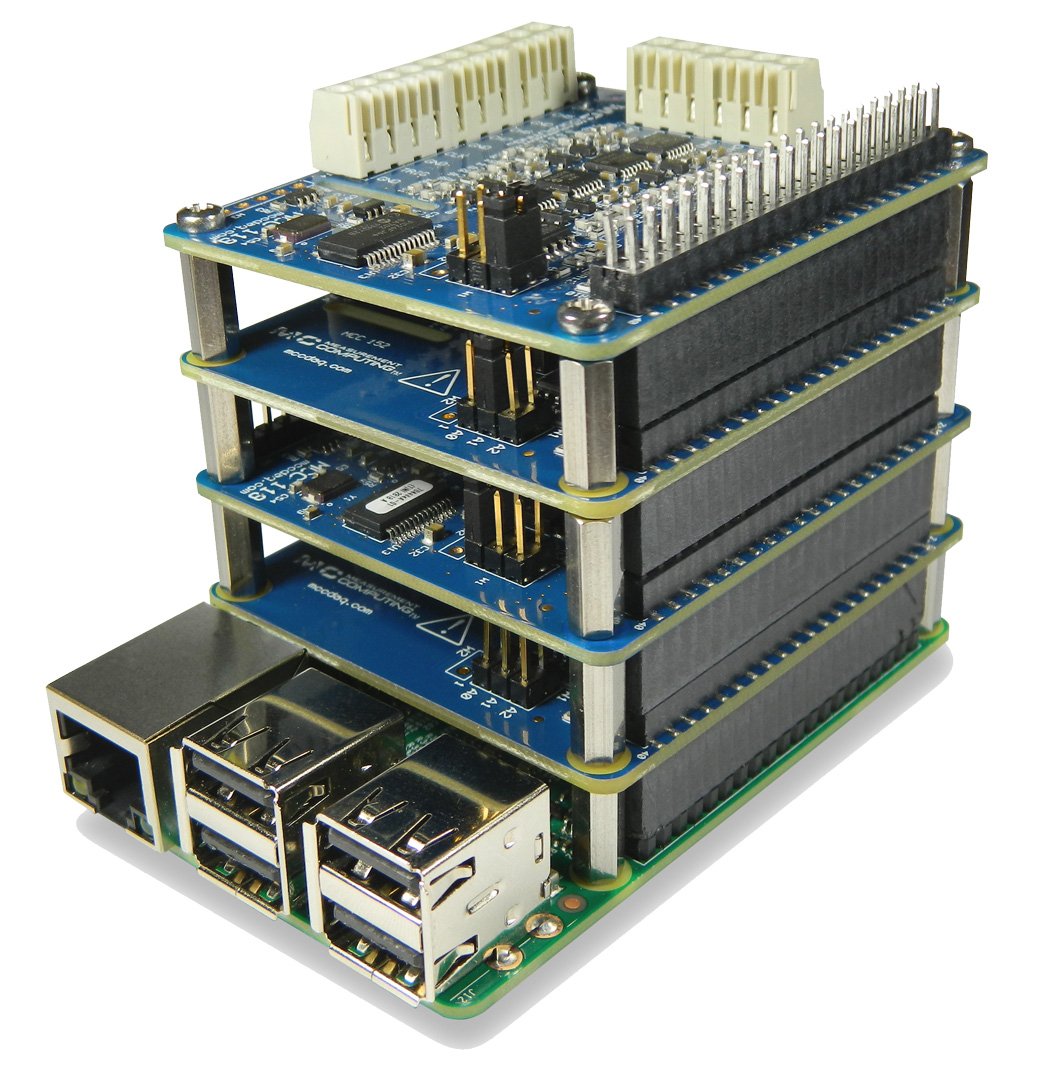
The Raspberry Pi does not have built-in test and measurement functions such as analog-to-digital converters (ADCs), digital-to-analog converters (DACs), or conditioned digital inputs and outputs (DIOs). However, these functions can be added via the 40-pin GPIO connector. Devices that connect directly to the 40-pin connector and stack onto the Raspberry Pi are called HATs (Hardware Attached at the Top).
Over the years, individuals have released open-source designs and small companies have sold low-cost HATs for a variety of tasks, including support for analog and digital I/O. These designs and products are adequate for the educational and hobbyist/creator markets, but have some serious drawbacks for professional test and measurement applications. Most of these devices are partially assembled, with no specification or programming support, and no performance guarantees that can only be realized through a thorough device validation process.
MCC DAQ HATs
In an effort to bring professional-quality measurement products to the Raspberry Pi platform, Measurement Computing (MCC) has developed a series of DAQ HATs that offer similar specifications and accuracy to MCC's legacy USB and Ethernet DAQ products, with resolutions of up to 24-bit and sample rates of up to 100 kS/s. The DAQ HATs are available in a wide range of sizes and sizes, and can be customized to meet the specifications of the Raspberry Pi platform and the Raspberry Pi platform.
MCC offers five Raspberry Pi HAT-compliant products for test and measurement applications. These devices provide data acquisition capabilities such as analog and digital I/O in a small, stackable format.
HATs for measuring voltage
- The MCC 118 is an eight-channel voltage measurement HAT that allows users to measure 12-bit data at a total throughput of 100 kS/s. Eight devices can be stacked on a single HAT. The eight devices can be stacked on a single Raspberry Pi to create a 64-channel device capable of reading data at a total rate of 320 kS/s. The MCC 128 has a 16-bit resolution and can be used to measure voltage at a total throughput rate of 100 kS/s.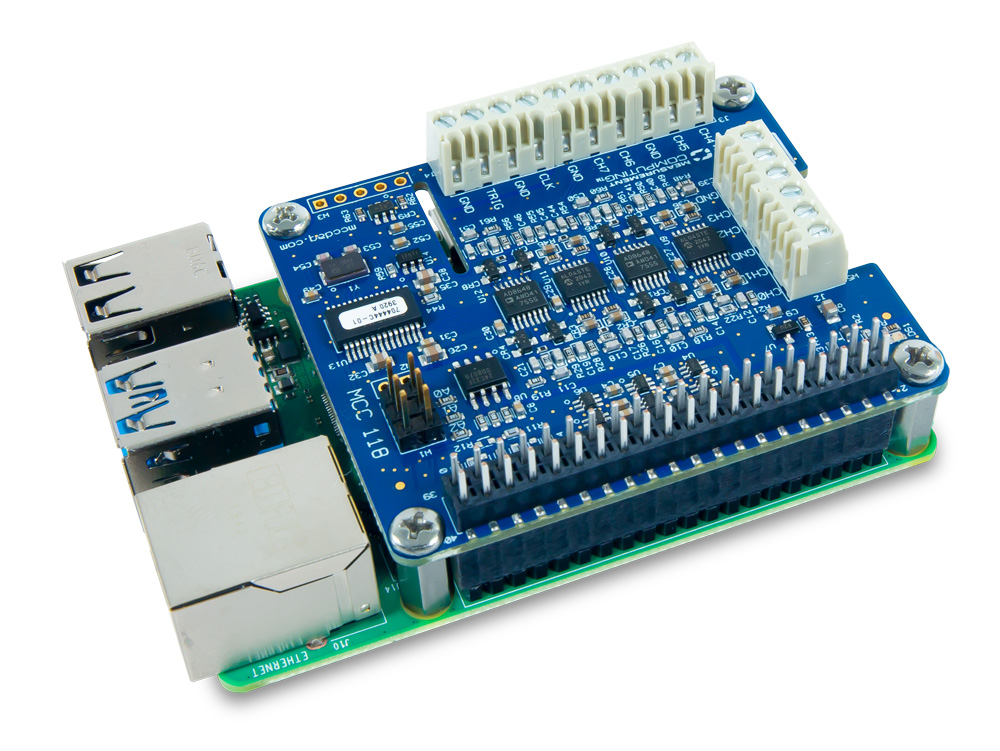
- The MCC 128 has 16-bit resolution and includes eight analog inputs with a maximum sample rate of 100 kS/s. Multiple gain ranges are also included, allowing users to make precise measurements.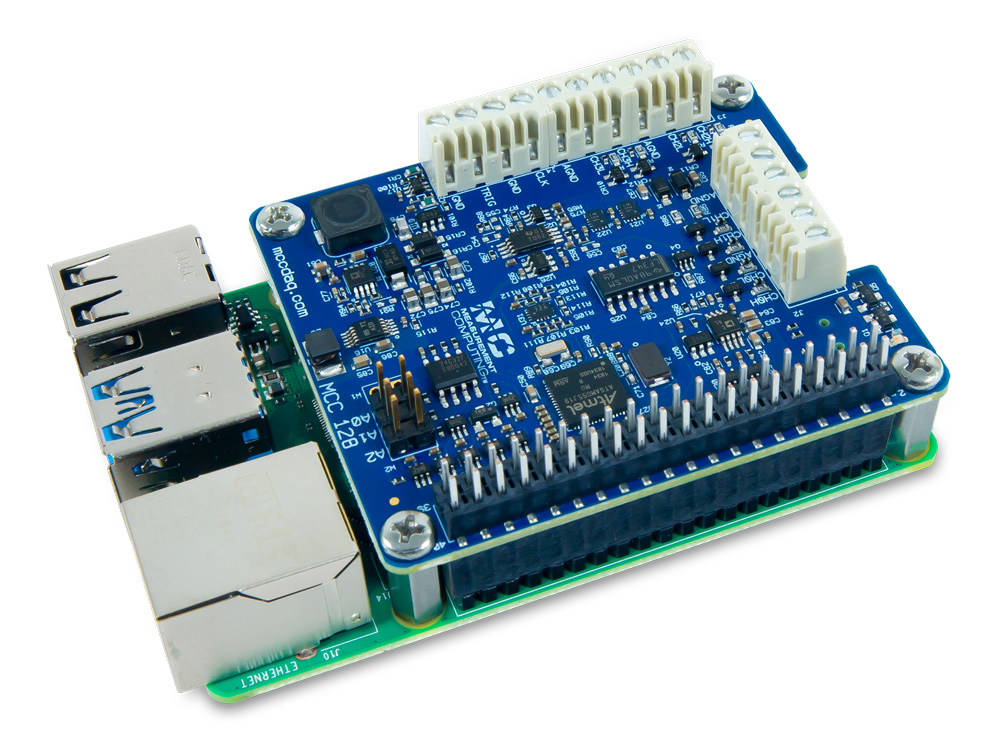
HAT for Voltage Outputs and Digital I/Os
- The MCC 152 provides two 12-bit analog outputs and eight 5 V or 3.3 V DIO channels to create a complete versatile Raspberry Pi measurement and control system.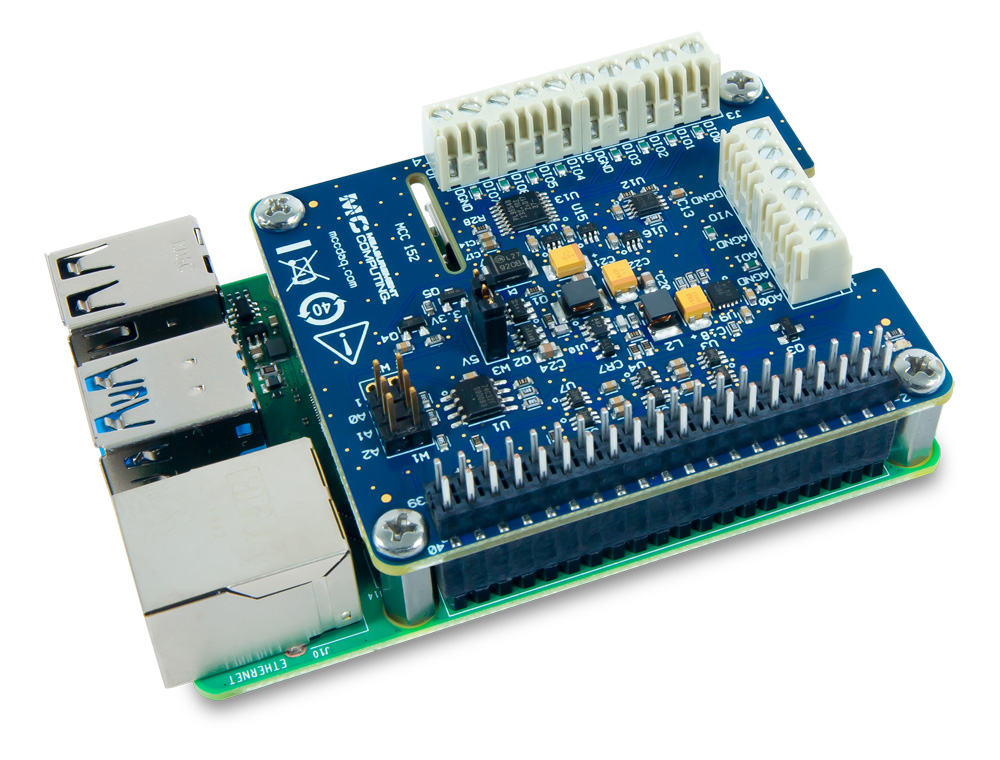
HAT for thermocouple measurement
- Designed for temperature measurement applications, the MCC 134 features four thermocouple input channels. 24-bit A/D and cold-end compensation provide professional-grade accuracy. Multiple thermocouple types can be selected for each channel.MCC has a long history of designing and building accurate DAQ devices for measuring thermocouples. Thermocouples are a low-cost and flexible method of measuring temperature, but accurately measuring thermocouples can be difficult. Through innovative design and extensive testing, MCC overcame the challenge of accurately measuring thermocouples in an uncontrolled Raspberry Pi environment.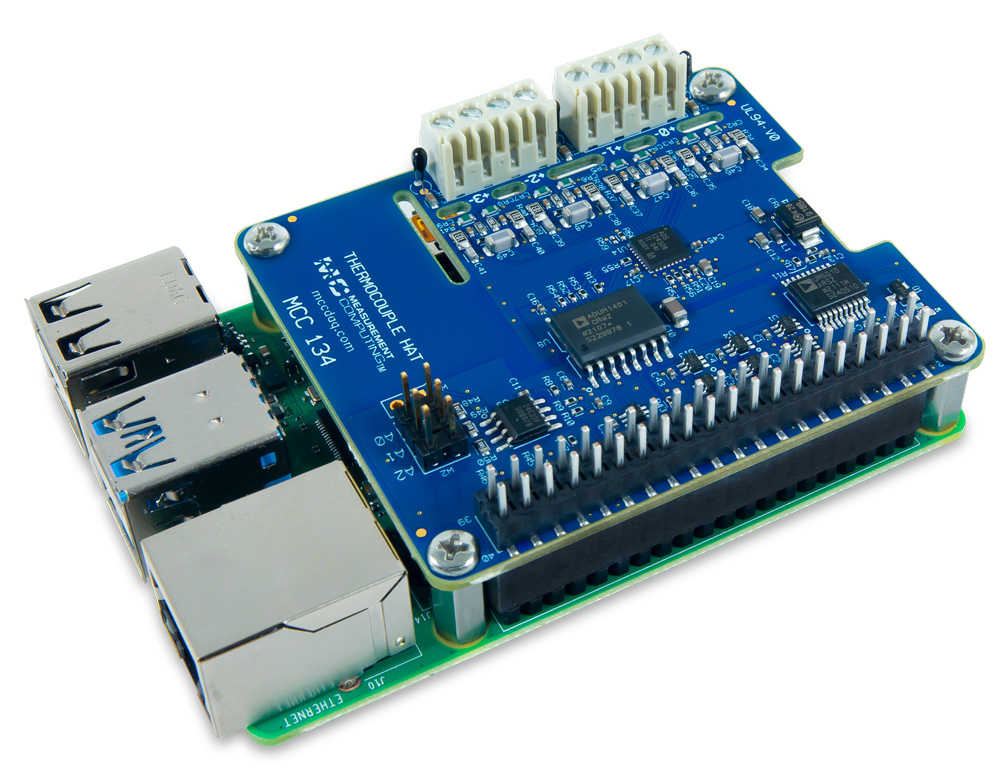
Measuring HAT for IEPE
- Designed for sound and vibration applications, the MCC 172 provides two IEPE input channels to measure IEPE sensors such as accelerometers and microphones without any additional signal conditioning. Each channel can simultaneously sample the input at up to 51.2 kS/s. The DAQ HAT can be used with only one IEPE input.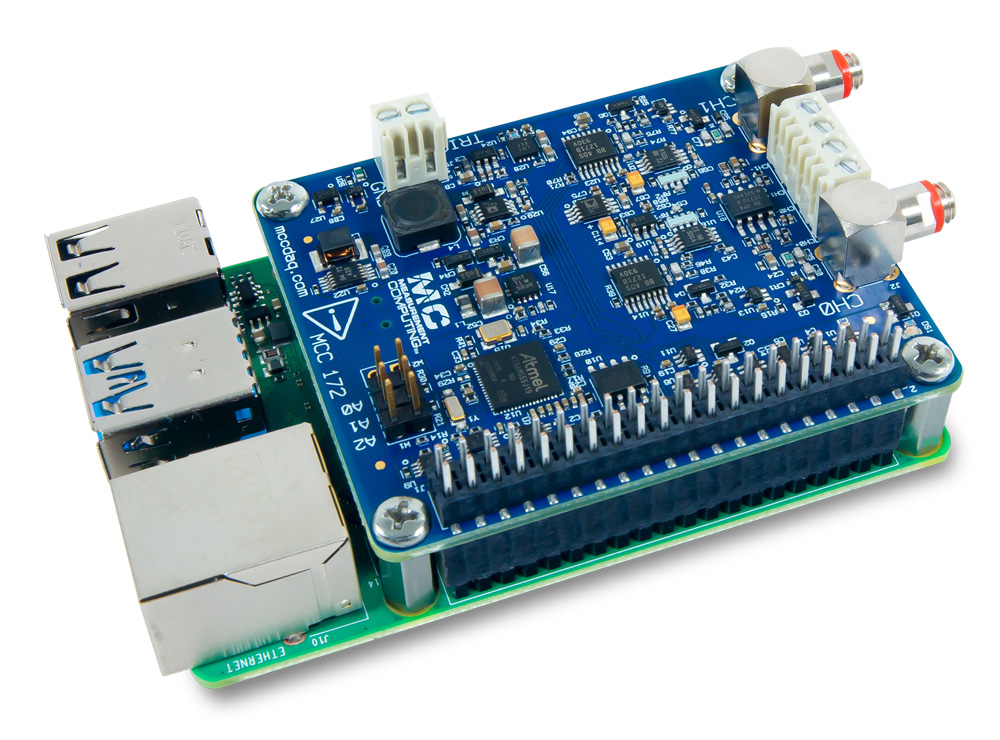
The DAQ HAT can be used for basic applications with only a few voltage input channels or for more complex applications with up to 64 channels of multiple signal types.
The MCC DAQ HAT comes with software libraries supporting Python™ and C/C++® to facilitate fast and easy development. Comprehensive API and hardware documentation is also available. the DAQ HAT software library was created and is supported by MCC. The development repository is located on GitHub where users can find libraries, examples, firmware updates and more.
Raspberry Pi DAQ Applications
The Raspberry Pi is well suited for many DAQ applications.The MCC DAQ HAT has been used in a variety of applications and industries. These applications can be lab, remote and IoT solutions, and OEM/embedded systems. Some examples of customer applications/industries include biomechanics, wind energy, power monitoring, machine condition monitoring, predictive maintenance, and more.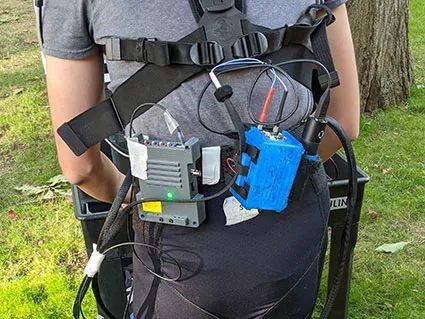
The compact size of the Raspberry Pi and MCC 172 allows researchers to create lightweight and wearable DAQ solutions to measure dynamic activity during walking and running.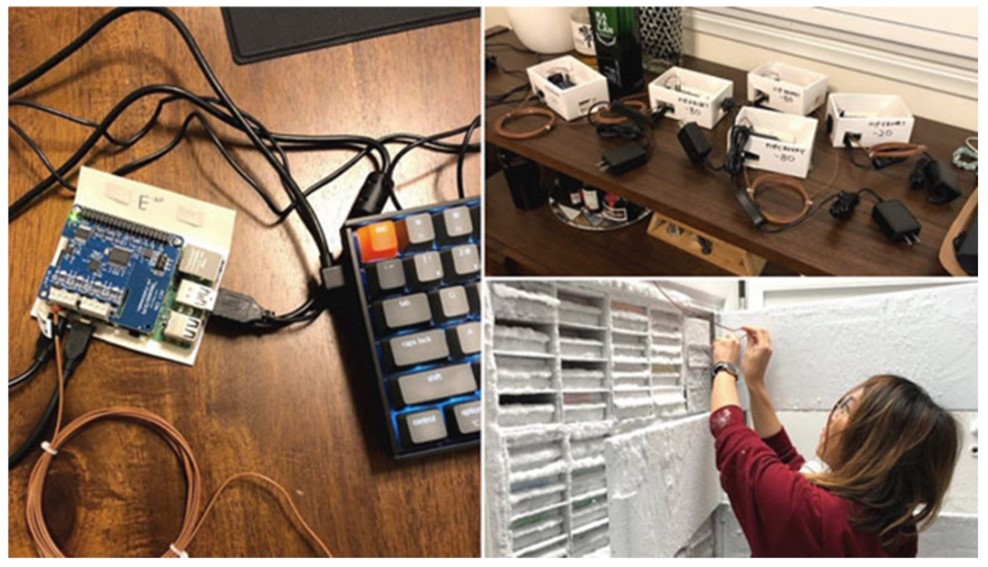
Building a Low Temperature (-200°C to 260°C) Remote Monitoring System with Raspberry Pi® and MCC 134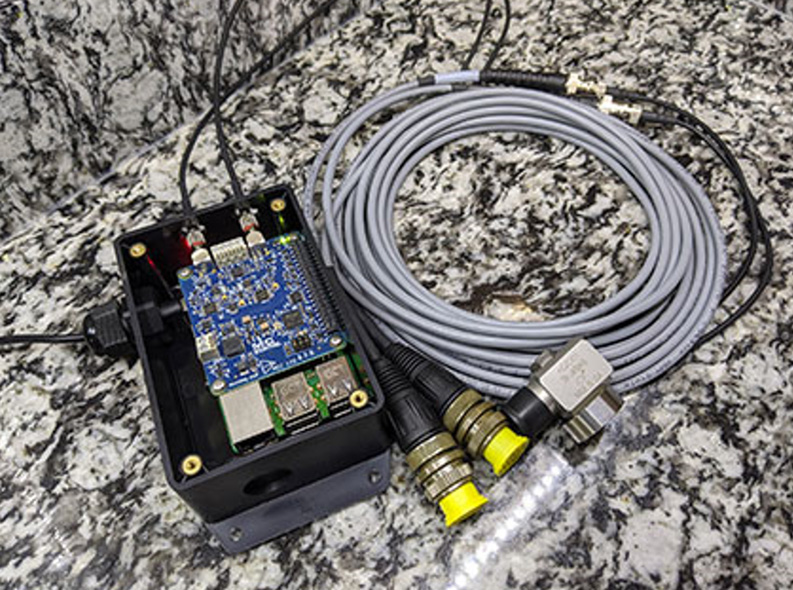
Based on the Raspberry Pi®'s use of the MCC 172 and MCC 134 for mechanical monitoring and predictive maintenance, the MCC DAQ HAT fits easily into an existing system chassis.
